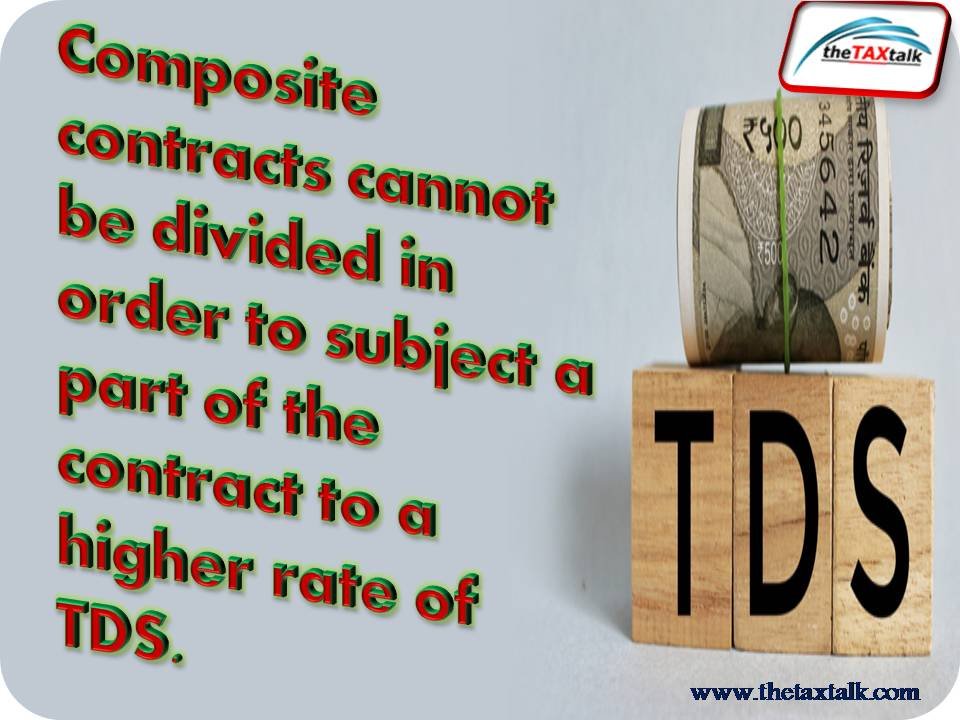![]()
Composite contracts cannot be divided in order to subject a part of the contract to a higher rate of TDS.
The Commissioner Of Income Tax (TDS) And Another v. Lalitpur Power Generation Co. Ltd. (ITA No. 111 of 2018)
Facts:
- The assessee was engaged in business of generation of power. To set up the thermal power plant, the assessee entered into two sets of contracts. First, with Bharat Heavy Electric Ltd. (BHEL) to set up a Boiler Turbine Generator (BTG) and the second with Carbery Infrastructure Pvt. Ltd. (CIPL) to set up Balance of Plant (BOP).
- On 19th June, 2014, individual orders came to be passed u/s. 201 of the Income Tax Act describing the assessee to be in default of deduction of TDS required to be made by it at the higher rate of 10% (u/s. 194J of the Income Tax Act) against the lower rate of 2% (u/s. 194C of the Income Tax Act) applied by the assessee, to the payments made by the assessee in each year, against the two contracts for the works done under the head of “services of Transportation, Insurance, Erection, Installation, Testing and Commissioning of BTG”, awarded to BHEL and also the work done under the head of “Erection, Installation and Commissioning of BOP”, awarded to CIPL.
- The revenue maintained that, assessee had not maintained any account to establish the actual payment made to BHEL for the work of Testing and Commissioning of BTG. Similarly, the assessee had not maintained separate account to establish the payment made to CIPL for Installation and Commissioning of BOP. Since payments for those works performed by the BHEL and CIPL fell under the head “fees for technical services” as defined under clause (b) of sub-section (1) of Section 194J of the Act, read with Explanation [2] to clause (vii) to sub-section (1) of Section 9 of the Act, the assessee was liable to deduct the Tax at Source/TDS, at the rate of 10% in terms of Explanation (b) to section 194J of the Act.
Hon Allahabad High Court held as below:
- A contract should be interpreted based on its main objective and, in the absence of an enabling law, the taxing authorities cannot overlook the dominant object of the contract.
- An indivisible contract cannot be artificially dissected by taxing authorities to the detriment of the taxpayer.
- It is the responsibility of the taxing authority to demonstrate the legal basis for dividing an otherwise indivisible contract. Taxing authorities are not permitted to presume or assume facts but are mandated to apply tax laws to established facts.
- The appeal is dismissed in favor of the taxpayer.
The copy of the present judgment is as under:


